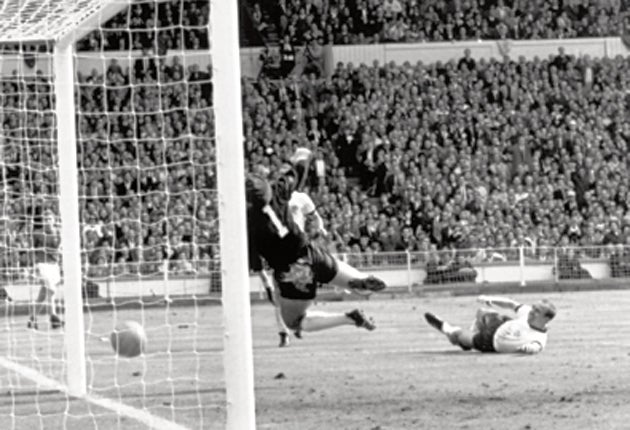Fifa's obduracy costs England dear as goal goes unnoticed

It was the moment which had everyone watching the match rubbing their eyes in disbelief. The ball left Frank Lampard's right boot, sailed over the head of the German goalkeeper Manuel Neuer, kissed the underside of the crossbar and dropped a clear yard behind the goal-line.
It was a goal. But the Uruguyan linesman Mauricio Espinosa failed to realise. And as furious England fans rage, so too again will the debate about goal-line technology. Despite years of clamour for the technology to be introduced in football, Fifa, the sport's governing body, has stubbornly and repeatedly refused to implement it.
The opponent-in-chief is Fifa president Sepp Blatter. He was in Bloemfontein's Free State Stadium to witness yesterday's goal that never was. He had nothing to say afterwards.
Fabio Capello, the England coach, blamed the officials for the error. He said: "This is a mistake of the linesman and also the referee. From the bench I saw the ball go into the net. I am sure the big mistake of the referee was too important for us to go forward."
Blatter's primary argument is that football's appeal lies in the fact that children in a park can play by the exact same rules as Premier League stars. Goal-line technology would destroy this, he says.
In March, Fifa, backed by the Welsh and Northern Irish Football Associations, voted to end a pilot scheme which the English and Scottish FAs were keen to continue.
At the time Blatter said: "The game must be played in the same way no matter where you are in the world. Many matches, even at the highest level, are not even televised. For example, we have close to 900 preliminary matches for the World Cup, and the same rules need to be applied in all matches of the same competition."
Blatter also says that if the rule is implemented for goal-line disputes, a clamour will follow for it to be introduced in other areas of the game. He has added: "Every decision in every area of the pitch would soon be questioned. No matter which technology is applied, at the end of the day a decision will have to be taken by a human being." Instead Fifa plans to continue a trial which involves additional referees standing behind each goal.
The Hawk-eye technology would work by having several cameras trained on the goal mouth. Each camera would feed information to a computer to analyse the footage and relay to the referee almost instantly whether or not a ball has crossed the line.
Those in favour of technology point out that other sports such as tennis and cricket benefit from Hawk-eye technology. Rugby uses a video referee to solve disputes over tries. Those sports do have more natural stoppages for the decisions to be examined. One argument is that using the technology in football would spoil its pace and fluidity. Nonetheless the majority of football fans, players, managers and even the Premier League are in favour of its introduction.
In the aftermath of yesterday's result, Fabio Capello and Minister for Sport Hugh Robertson said they could not understand why the technology wasn't being used. But this morning, what will perhaps anger England fans more than Fifa's refusal to embrace technology is that Germany so outclassed England that it probably would have been futile anyway.
How other sports let technology decide
Tennis Introduced at tennis's highest level in 2007, Hawk-eye shows where the ball lands when players dispute a decision by the line-judge or umpire. It has a margin of error of 3.6mm.
Cricket First used in 2001, Hawk-eye can be used for appeals against some leg-before-wicket decisions. The technology examines the ball's trajectory to work out whether it would have hit the stumps. There is also a third umpire who uses instant replays to decide on run-outs and stumpings.
Rugby A video referee was first used in 1996 and is now used in both rugby league and union. The video-ref can be called upon to assist in awarding tries.
Subscribe to Independent Premium to bookmark this article
Want to bookmark your favourite articles and stories to read or reference later? Start your Independent Premium subscription today.

Join our commenting forum
Join thought-provoking conversations, follow other Independent readers and see their replies